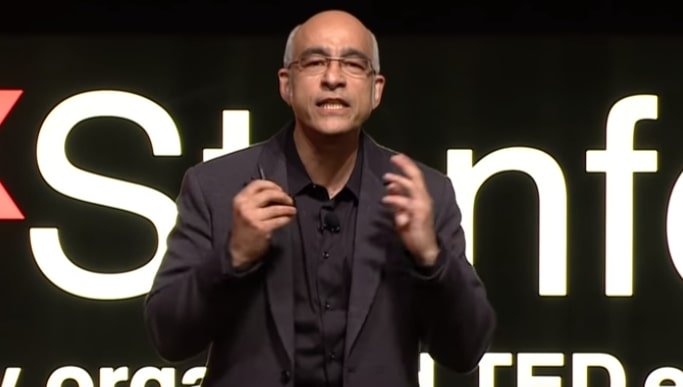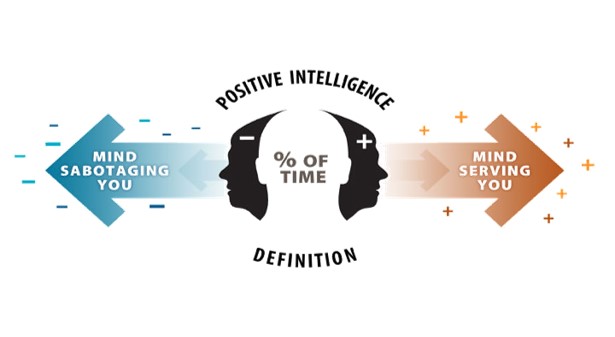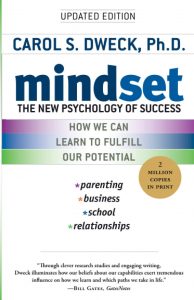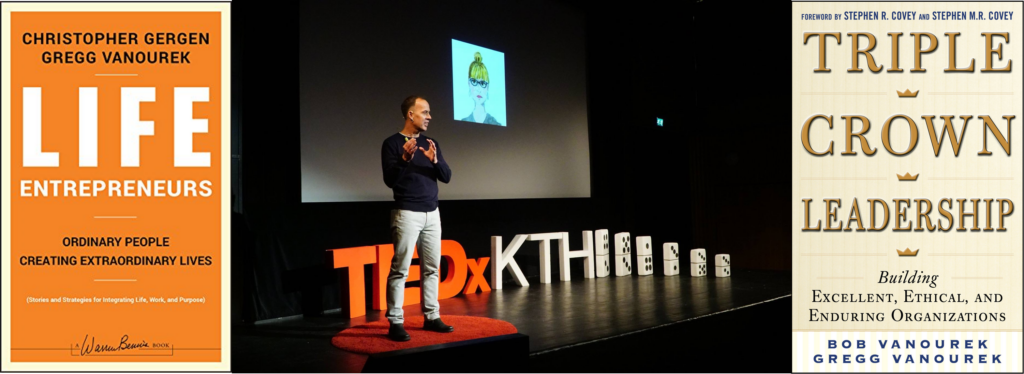Article Summary:
You want to keep learning and growing, but you face many demands at work and home. Here we identify the main benefits of lifelong learning and ways to incorporate lifelong learning into your busy schedule.
+++
You want to keep learning and growing—but between deadlines, meetings, and family responsibilities, your good intentions fizzle out. This post addresses why ongoing education matters for your life and work and offers many ways you can fit lifelong learning into your schedule.
How Education and Learning Can Enrich Every Aspect of Your Life
Lifelong learning is a powerful catalyst for success and fulfillment as well as a big contributor to your quality of life. Here are five benefits of ongoing education and lifelong learning:
1. Personal and Professional Growth. Ongoing learning helps you develop self-awareness, empathy, and emotional intelligence—all keys to deeper relationships, more success, and greater fulfillment. As you grow, you’re better able to support and mentor others (whether colleagues or family members), amplifying your impact.
2. Better Decision-Making. Expanding your knowledge broadens your perspective. With more information and sharper thinking skills, you’re able to make wiser, more strategic choices—whether about your job, finances, health, or relationships.
3. Enhanced Problem-Solving. Learning sparks creativity and helps you approach challenges with fresh thinking. This can lead to breakthroughs at work, inventive solutions at home, and more effective ways of handling everyday obstacles.
4. Stronger Influence and Communication. The more you learn, the better you can express yourself, understand others, and connect across cultures, ages, and backgrounds. This can improve not only your career prospects but also your family dynamics, friendships, and community involvement.
5. Adaptability to Change. Continuous learning keeps you ahead of life’s ongoing shifts—new technologies, workplace changes, and evolving social norms—so you can respond with confidence, not anxiety.
“Learning is experienced as a personal transformation. A person does not gather learnings as possessions but rather becomes a new person…. To learn is not to have, it is to be.” -Gib Akin, University of Virginia professor
Ways to Incorporate Lifelong Learning into a Busy Schedule
Learning doesn’t have to stop after school. It can become a lifelong practice that energizes your career, deepens your relationships, and enriches your life. Below are some practical ways to incorporate lifelong learning into your schedule.
Learning & Knowledge Expansion
- Reading books*, articles, and blogs (or research papers or industry journals)
- Listening to podcasts and audiobooks
- Watching TED talks and other educational videos or documentaries
- Attending lectures, seminars, or conferences
- Following thought leaders on LinkedIn, Substack, or other channels
Skills Development
- Taking online courses
- Enrolling in certificate or micro-credential programs
- Practicing with new tools or technologies (e.g., experimenting with AI programs like ChatGPT, Gemini, Claude, or Copilot)
- Joining skill-specific workshops or bootcamps at work or beyond (consider identifying your important skills gaps and seeking to fill them)
“Learning is the master skill.”
-Jim Kouzes & Barry Posner, The Leadership Challenge
Training & Structured Development
- Participating in employer-sponsored training programs
- Joining professional associations and attending their events and programs
- Seeking an advanced degree in a field of interest
- Executive education programs
- University programs for adults**
- Job shadowing
- Job rotations
- Mentorship (as mentee and/or mentor)
- Coaching
- Apprenticeships
- Internships (or “returnships” for mid-career professionals, or “externships” outside your organization or learning institution).
“Until most individuals recognize that sustained training and effort is a prerequisite for reaching expert levels of performance, they will continue to misattribute lesser achievement to the lack of natural gifts, and will thus fail to reach their own potential.” -K. Anders Ericsson, Swedish psychologist
Interactive & Social Learning
- Learning from your family, friends, and colleagues (be curious; the people around you have so much they can teach you, if only you get curious and ask)
- Engaging in small groups (e.g., mastermind groups, “True North” groups, roundtables, peer learning circles)
- Participating in book clubs or discussion groups
- Contributing to professional forums or online communities (e.g., LinkedIn groups, Reddit, Discord)
- Learning by teaching (one of the best ways to learn something, as I can personally attest)
- Learning through feedback (asking for feedback often and being truly open to it and taking action on it).
“Feedback is at the center of any learning process…. Learning doesn’t happen without feedback.”
-Jim Kouzes & Barry Posner, The Leadership Challenge
Self-Directed Learning
- Personal projects/experiments, consulting projects (paid or pro bono), or side hustles
- Stretch assignments at work that push your comfort zone
- Cross-training in areas outside your core role
- Self-assessments (e.g., Traps Test, Strengths Search, Passion Probe, Leadership Derailers Assessment)
- Journaling and reflection to process lessons learned from your experiences—especially mistakes, adversity, and failure
“Everything that happens to you is your teacher.
The secret is to sit at the feet of your own life and be taught by it.”
-Polly B. Berends
Immersive Learning
- Volunteering for causes to gain new perspectives
- Traveling to broaden horizons, including service or mission trips
- Language learning for cognitive and cultural benefits
- Attending service days, hackathons, design sprints, or innovation labs
The point isn’t to try to do all—or even most—of these things. Rather, the point is to pick a few and do them regularly and well.
Experiment and have fun with it. See where it takes you.
How to Vet Your Learning Opportunities
With so many options available, it’s easy to feel overwhelmed. Before you invest your time, money, and energy, pause to evaluate each opportunity. Consider the following factors:
Gauge Your Interest Level. Ask whether you’re genuinely curious about the topic. Motivation is much easier to sustain when you’re intrigued or inspired by the subject.
Check Relevance to Your Work and Passions. Does this opportunity align with your career goals, personal passions, or long-term aspirations? Relevance increases both usefulness and enjoyment.
Assess the Value of the Content. Consider whether what you’ll learn will benefit your family, team, organization, or community.
Consider Your Intellectual Development. Will it stretch your thinking? Challenge your assumptions? Expand your skills? Look for experiences that help you grow, not just confirm what you already know.
Evaluate the Source. Vet the credibility and reputation of instructors, institutions, or platforms. Seek out high-quality content from trusted experts.
Weigh Time and Energy Costs. Don’t get carried away and overload your schedule. Check whether you have the bandwidth to engage.
Consider Engagement Potential. Some topics naturally invite active participation, while others are more passive. Will this experience allow you to practice, discuss, or apply what you’re learning—or just sit and listen?
Factor in Your Curiosity. Curiosity is a powerful driver of interest, retention, and creativity. Opportunities that pique your curiosity often lead to deeper and more enjoyable learning.
Don’t Forget the Fun Factor. Learning doesn’t have to feel like a chore. Fun and engaging experiences are easier to remember and inspire you to keep learning.
By running each option through this quick “learning filter,” you’ll invest your resources in experiences that are not only enriching but also energizing, relevant, and impactful.
Conclusion
Our world is vast, fascinating, and endlessly multifaceted. It’s teeming with wonders in the natural world, mysteries in the cosmos, and depths still unexplored in the human mind and in our relationships with one another. Every day presents a new chance to uncover insights and expand your perspective.
Lifelong learning can be your passport to a richer and more meaningful life. Make curiosity a habit, not a hobby. Seek out new ideas, skills, and experiences. Stretch beyond your current boundaries. And be sure to share what you discover along the way.
The more you learn, the more fully you can live. And the more fully you live, the more you’ll have to give to others.
Wishing you well with your adventures in lifelong learning. They’re magical.
–Gregg

Tools for You
- Quality of Life Assessment so you can discover your strongest areas and the areas that need work, then act accordingly.
- Crafting Your Life & Work online course to help you design your next chapter and create a life you love.
- Traps Test (Common Traps of Living) to help you identify what’s getting in the way of your happiness and quality of life.
Related Articles and Books
- “Taking Stock of Your Quality of Life”
- “Great Leaders Prioritize Learning—Why and How”
- “The Benefits of Systematic Personal Development”
- “Your Leadership Mindset”
- Carol Dweck, Mindset: The New Psychology of Success
- James Kouzes and Barry Posner, Learning Leadership
- Robert Kegan and Lisa Laskow Lahey, An Everyone Culture: Becoming a Deliberately Developmental Organization
- Peter Senge, The Fifth Discipline: The Art and Practice of the Learning Organization
Postscript: Inspirations on Education and Learning
- “An investment in knowledge always pays the best interest.” -Benjamin Franklin
- “…the purpose of education is to allow each individual to come into full possession of his or her personal power.” -John Dewey
- “Education is not the filling of a pail, but the lighting of a fire.” -Yeats
- “Education is the most powerful weapon which you can use to change the world.” -Nelson Mandela
- “Taking charge of your own learning is a part of taking charge of your life, which is the sine qua non in becoming an integrated person.” -Warren Bennis
- “If you are not willing to learn, no one can help you. If you are determined to learn, no one can stop you.” -Zig Ziglar
- “If you haven’t learned how to learn, you’ll have a hard time. Knowing how to learn is partly curiosity. But it’s also a discipline.” -Peter Drucker
- “Not all readers are leaders, but all leaders are readers.” -Harry S. Truman
- “The ability to learn is the most important quality a leader can have.” -Sheryl Sandberg
- “Leadership and learning are indispensable to each other.” -John F. Kennedy
- “In times of change, learners inherit the Earth, while the learned find themselves beautifully equipped to deal with a world that no longer exists.” -Eric Hoffer
- “The human mind, once stretched to a new idea, never goes back to its original dimensions.” -Oliver Wendell Holmes
- “Let us think of education as the means of developing our greatest abilities, because in each of us there is the private hope and dream which, fulfilled, can be translated into benefit for everyone and greater strength for our nation.” -John F. Kennedy
- “Of all things, I like books best.” -Nikola Tesla
- “Education can no longer be confined to the schools. Every employing institution has to become a teacher.” -Peter Drucker
- “Learning is the one activity in which we can engage as fully in old age as when we are young.” -Aristotle
- “Human history becomes more and more a race between education and catastrophe.” -H.G. Wells
“The best thing for being sad,” replied Merlyn… “is to learn something. That is the only thing that never fails. You may grow old and trembling in your anatomies… you may see the world around you devastated by evil lunatics…. There is only one thing for it then—to learn. Learn why the world wags and what wags it. That is the only thing which the mind can never exhaust, never alienate, never be tortured by… and never dream of regretting. Learning is the thing for you.”
-Merlyn speaking to Arthur, from The Once and Future King
* Please famous for their voracious book reading habits include Bill Gates, Oprah Winfrey, Warren Buffett, Emma Watson, Barack Obama, Michelle Obama, Mark Cuban, J.K. Rowling, Malala Yousafzai, and many more. I try to follow their lead by reading a good book every morning.
** Examples: University of Colorado Denver Changemakers Program, Harvard Advanced Leadership Initiative, Notre Dame Inspired Leadership Initiative, Stanford Distinguished Careers Institute, University of Chicago Leadership & Society Initiative, University of Texas Tower Fellows Program, etc.
+++++++++++++++++
Gregg Vanourek is a writer, teacher, and TEDx speaker on personal development and leadership. He is co-author of three books, including LIFE Entrepreneurs: Ordinary People Creating Extraordinary Lives (a manifesto for living with purpose and passion) and Triple Crown Leadership: Building Excellent, Ethical, and Enduring Organizations (a winner of the International Book Awards). Check out his Crafting Your Life & Work online course or get his monthly newsletter. If you found value in this article, please forward it to a friend. Every little bit helps!














